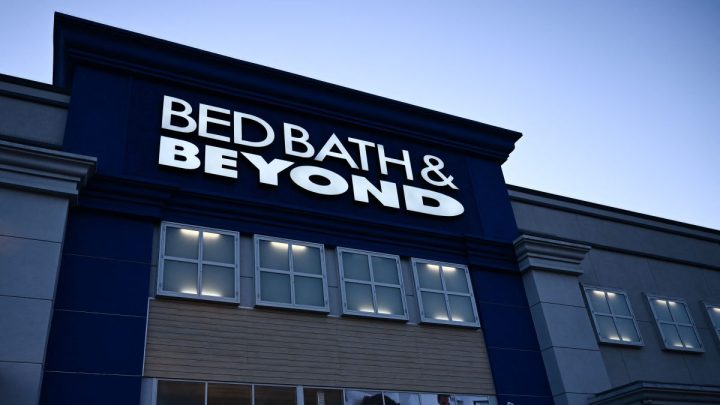
Why retailers almost never come back from bankruptcy

The Bed Bath & Beyond bankruptcy saga continues — this time with a glint of good news. The company is in talks to sell its baby product chain, Buybuy Baby, according to reporting by The Wall Street Journal. Meanwhile, the home goods store itself, BB&B, is still on a path to extinction.
That’s not all that surprising given that, compared to companies in other industries, retailers have a much harder time emerging from bankruptcy.
There are enough fallen retailers out there to fill a graveyard — Sports Authority and Sam Goody, for instance. And remember Borders books? The chain’s expansion may have seemed borderless, until it ran into Amazon.
“If you look at the retail industry, the way that companies grow and decay is pretty rapid,” said Santiago Gallino, a professor of operations at Wharton. “And that’s, in part, because of how dynamic the industry is — because of economic cycles, because of changes in the culture, changes in what customers want.”
Businesses of all kinds are affected by fickle consumers, but because retailers are so close to consumers (unlike, say, manufacturers), they are the most vulnerable.
By the time a brand is so out of touch with technology or trends that it has to file for bankruptcy, customers have moved on. And in a Chapter 11 bankruptcy, companies have just four months to reimagine a business plan.
It’s why most retailers instead look for a buyer. That buyer is going to evaluate what it’s getting out of the deal.
“You may be picking up leases and real estate, so you may have location,” said James Gellert, CEO of RapidRatings.
But that’s not a huge win, since, as Gellert pointed out, many retailers rent space rather than own. “But you’re really betting on the brand name and a hopefully loyal customer base that wants to see you succeed,” he said.
But if that customer base was that loyal, the company would likely not be in bankruptcy in the first place.
So really, there isn’t much to acquire in retail, unlike airlines that own planes, manufacturers that own intellectual property rights, and carmakers that own plants full of machinery. All that retailers own are shelves full of stuff.
“It’s very tempting for the creditors just to say, ‘Let’s just generate some cash out of this thing, get the money that we need and then we’re done,'” said Jared Ellias, who researches corporate bankruptcy at Harvard Law.
A liquidation sale is exactly what it sounds like: The company is going out of business.
There’s a lot happening in the world. Through it all, Marketplace is here for you.
You rely on Marketplace to break down the world’s events and tell you how it affects you in a fact-based, approachable way. We rely on your financial support to keep making that possible.
Your donation today powers the independent journalism that you rely on. For just $5/month, you can help sustain Marketplace so we can keep reporting on the things that matter to you.











